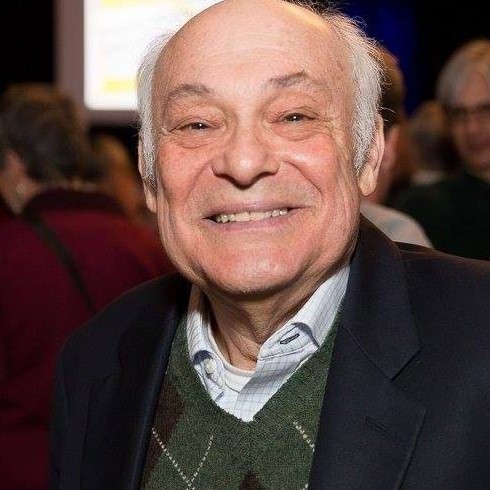By Cooper-John Trapp, Staff Writer
Abraham Peck grew up a child of the Holocaust, having both parents narrowly escape the worst of Nazi Germany. Separated for 14 months, Peck’s mother and father finally found each other after fleeing bombings, roundups and the horrors of WWII occupied territory.
It was May 1945, in the concentration camp of Theresienstadt, that had just been liberated by the Soviet Army. The next year, Abraham Peck was born. Those experiences, both of he and his parents, provided a path he trod down ever since.
His parent’s experiences as the ‘lucky ones,’ European Jews that survived the Holocaust, framed Peck’s life, both personally and professionally, eventually leading to his headlining a Gloria S. Duclos Convocation event “Beyond the Clash of Civilizations: American Muslims, American Jews, and the Search for a New Religious America.” Growing up in Waterbury, CT he grew up like most of the second generation survivors did— an American kid without an accent, playing sports, trying to be like everybody else. His father would talk without end to young Peck, his only audience, of what he had gone through. Peck recalls, “That was always a part of who I thought I was.”
He received his B.A and M.A in International Relations from American University in 1968 and 1970, respectively. But the question of his heritage, and the legacy of the survivors, had yet to be understood. By the 1970s, many survivors had aged and passed away, and felt a need to tell the world of what had happened. The second generation began to understand themselves better and wished to know more of what happened.
That wish drove Peck to England to study German history firsthand. He went to East Germany where official records of the war and were still kept and began piecing together the puzzle.
As his generational cohorts continued to get older and spread their wings in the world, the 1980s brought about the question ‘what do we do about this?’ At the time, understanding of the Holocaust and German history was just beginning to be understood in depth.
He and his contemporaries began the process of creating museums, memorials, and conferences to do what they could about their shared past. One such conference drew Gottfried Wagner, grandson of famous German composer Richard Wagner.
Wagner represented the German side of the equation; the children of the perpetrators, as Peck was the children of the victim. That conference was a watershed moment for the two men. They stayed in contact after the conference and in 1991, inspired by their ongoing dialogue, created the Post-Holocaust Generations Dialogue Group. This group, which ‘seeks to convert the inherited legacies of sons and daughters of Holocaust survivors and sons and daughters of German perpetrators in a forum for intergenerational dialogue and social action.” Those conversations evolved to engage Jewish and Muslim relations, and eventually he hopes to incorporate all religious groups in Maine toward the goal of bettering the common welfare of society’s worst-off.
Peck joined USM’s History department in 2001. In 2009, he founded the Holocaust, Genocide, and Human Rights Studies program at the University of Maine Augusta where he taught until 2011. From there, Saint Leo’s University just north of Tampa drew on his skills to direct the Center for Catholic Jewish Studies and taught in their History department until 2014. Peck currently teaches courses in German and Modern European History, the Holocaust, and Genocide along with his involvement in various social action organizations such as Interfaith Maine.
When asked why he chose to be at USM, he broke out in a warm chuckle. “It’s the only game in town,” he said with a laugh. He added that Portland is an important social center and that, “We have a president who really seems to care,” referring to the mission of engaging the community and promoting such relations.
The upcoming Convocation event culminates the core of Peck’s body of work. It includes the documentary screening of the relationship of New York University’s Rabbi Yehuda Sarna and Imam Khalid Latif, who have successfully built a coalition between the Jewish and Muslim student organizations on NYU’s campus.
Ideally, he says that the screening will facilitate a dialogue between Portland’s Jewish and Muslim populations.
In the fleeting moments he can catch between teaching classes and his involvement in various interfaith organizations, what does Professor Peck do in his spare time? He grins and laughs, “I walk the dog.”
Beyond the Clash of Civilizations begins April 9 at 7 p.m. in Hannaford Hall on the Portland campus.


So good to see you at reunion and now to learn about your wonderful contributions to society!